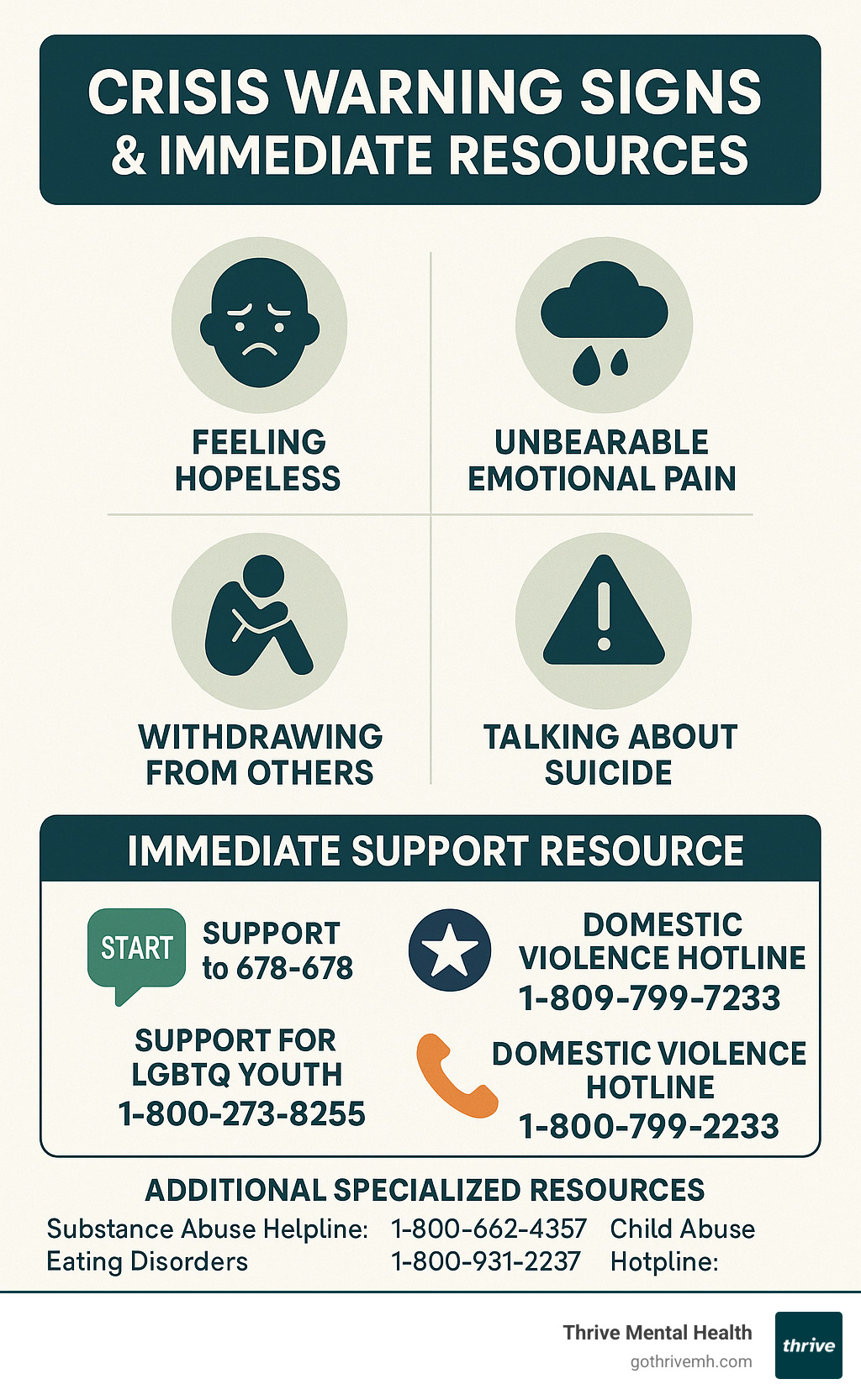Mental Wellness Online Made Easy (No Yoga Pants Required)

Why Mental Wellness Online is Changing Everything
Your Digital Toolkit: Types of Online Mental Health Services
When it comes to mental wellness online, think of today’s options as a customizable toolkit rather than a one-size-fits-all solution. From classic therapy sessions to self-help apps, you can mix and match what fits your schedule, budget, and comfort level.
Need a quick overview of what’s out there? Here are the essentials and why they matter.
One-on-One Therapy and Psychiatry
- Video or phone sessions – Traditional therapy without the commute. Evidence-based care (CBT, DBT, etc.) delivered straight to your couch.
- Asynchronous messaging – Text your therapist any time; get a thoughtful reply within a day or two. Ideal for middle-of-the-night worries.
- Medication management – Online psychiatrists can evaluate, prescribe, and monitor meds like SSRIs or SNRIs. Vital for areas with few local prescribers. See our full guide to medication management online.
Mental Health Coaching and Self-Guided Resources
Coaching focuses on goals, habits, and resilience rather than diagnosis. Prefer complete independence? Try:
- Mood trackers & CBT-based apps
- Guided meditations and breathing tools
- Gamified activities that turn coping skills into mini-challenges
They’re perfect add-ons to therapy or a lower-cost starting point. Dive deeper in our article on building resilience online.
Group Support and Intensive Programs
- Peer or therapist-led groups – Share experiences, reduce isolation, and pick up new coping ideas for less than individual therapy.
- Virtual IOP & PHP – Multi-hour, multi-day programs that deliver structured, evidence-based care without putting work or school on hold. Learn how virtual IOPs are revolutionizing care and explore the benefits of online DBT.
The takeaway: mix and match. Start small, scale up, or combine services—your toolkit adapts as your needs change.
Does It Really Work? The Effectiveness and Advantages of Going Digital
Does mental wellness online hold up in real life? In short: yes. Large studies show digital therapy matches in-person results for most common concerns, especially anxiety and depression.
| Factor | Online Therapy | Traditional Therapy |
|---|---|---|
| Convenience | 98% more convenient | Travel & scheduling required |
| Effectiveness | ~80% as effective* | Baseline |
| Cost | $65-100/week avg. | $125-199/session avg. |
| Accessibility | 24/7, global | Limited by location |
| Privacy | Home-based, no waiting room | Public offices |
*Across multiple meta-analyses of CBT and text-based interventions.
The Evidence Behind Virtual Care
- Internet-delivered CBT consistently cuts anxiety and depression scores; a review of 17 trials showed results equal to face-to-face treatment.
- Text-based therapy lets clients reflect before replying and still achieves comparable symptom drops.
- Platforms report higher completion rates—people stick with therapy when it fits their lives.
Key Benefits Beyond the Data
- 24/7 resources – Coping tools whenever symptoms spike.
- No travel – Save 30–45 minutes per session and skip weather, traffic, or mobility barriers.
- Rural & disability access – See specialists without leaving home.
- Lower stigma – Private sessions reduce the fear of being “seen” seeking help.
Explore more advantages in our guide to virtual therapy and remote mental health support.
Bottom line: online care works, removes logistical problems, and often keeps people engaged longer—key ingredients for lasting change.
Finding Your Fit: How to Choose the Right Path for Your Mental Wellness Online

Finding the right mental wellness online support is like shopping for the perfect coffee – what energizes your friend might keep you up all night. The key is understanding your unique needs, preferences, and lifestyle to find a match that actually works for you.
The beauty of online mental health care lies in its flexibility. You’re not locked into one approach forever. Maybe you start with therapy sessions and add a meditation app later. Or perhaps you begin with self-guided resources and graduate to group support. Your mental health journey is uniquely yours, and your support system should reflect that.
What Conditions Can Be Addressed Online?
The range of mental health challenges that respond well to mental wellness online might surprise you. Research consistently shows that digital platforms can effectively address most conditions that don’t require emergency intervention.
Anxiety disorders are particularly well-suited for online treatment. Whether you’re dealing with generalized anxiety, social anxiety, or panic attacks, the comfort of receiving support from your own space often reduces the anxiety about seeking help itself. Digital cognitive behavioral therapy has shown remarkable success rates for anxiety management.
Depression treatment online combines the best of multiple approaches. Regular therapy sessions, mood tracking tools, and 24/7 access to resources create a comprehensive support network. Many people find this constant availability more helpful than traditional weekly appointments that leave gaps between sessions.
Stress management thrives in digital formats. Online platforms offer real-time coping strategies, breathing exercises, and mindfulness techniques you can access the moment stress levels spike. This immediate accessibility can prevent small stressors from becoming overwhelming crises.
Relationship challenges can be addressed through individual therapy or couples counseling. The privacy of online sessions often makes it easier to discuss sensitive topics without the awkwardness of sitting in a waiting room together afterward.
Trauma and PTSD treatment has evolved significantly online. Specialized therapists use evidence-based approaches like trauma-focused CBT through secure video platforms, making specialized care accessible regardless of your location.
Grief and loss support benefits from the privacy and comfort of online care. Processing deep emotions feels safer when you’re in your own space, without worrying about composing yourself for the drive home.
Online platforms also effectively address OCD through exposure and response prevention therapy, bipolar disorder with mood tracking and medication management, eating disorders through specialized programs, and substance use challenges through recovery support and peer groups.
For targeted support, explore our resources on anxiety support online and online cognitive therapy approaches.
Is Online Mental Wellness Right for You?
Honest self-assessment is crucial when considering mental wellness online. While digital platforms work wonderfully for many people, they’re not the perfect fit for everyone – and that’s completely okay.
You’re likely to thrive with online mental health care if you’re dealing with mild to moderate symptoms that don’t require crisis intervention. Self-motivation plays a big role too – online therapy requires you to show up (virtually) and engage actively in your treatment.
Technology comfort matters, but you don’t need to be a tech wizard. If you can video chat with family or send emails, you have the skills needed. Reliable internet access and a private space for sessions are essential for effective treatment.
Online care works particularly well if you struggle with traditional scheduling constraints. Maybe you’re a parent juggling childcare, a professional with unpredictable hours, or someone dealing with physical limitations that make travel difficult.
Privacy concerns often make online therapy more appealing. If you’re worried about being seen entering a therapist’s office or explaining absences to employers, online care eliminates these barriers entirely.
However, online therapy isn’t appropriate if you’re experiencing severe mental health symptoms or active suicidal thoughts. These situations require immediate, in-person intervention. Court-ordered therapy typically must be completed in person, and many platforms have age restrictions for minors.
Some people simply prefer face-to-face interaction and find digital communication limiting. Others lack the reliable internet or private space necessary for effective online sessions.
You can always start with online care and transition to in-person therapy later, or use a combination of both approaches. The goal is finding what works best for your unique situation.
For detailed guidance on selecting the right service, check out our guide on choosing the right individual online counseling service.
Navigating Costs and Insurance for Mental Wellness Online
Understanding the financial landscape of mental wellness online helps you make informed decisions about your mental health investment. The good news? Online options are often more affordable than traditional therapy, with flexible payment structures to fit different budgets.
Subscription plans are the most common pricing model, typically ranging from $65-100 per week. This usually includes unlimited messaging with your therapist plus weekly live sessions. While it might seem expensive upfront, it often costs less than a single traditional therapy session and provides more comprehensive support.
Per-session fees work better if you prefer less frequent contact. These typically range from $80-150 per session, giving you more control over your monthly mental health expenses.
Insurance coverage for online therapy has expanded dramatically. The Mental Health Parity and Addiction Equity Act requires equal coverage for mental and medical health care, and most insurance plans now cover online therapy sessions just like in-person appointments.
When dealing with insurance, in-network providers will cost you less out-of-pocket than out-of-network options. Check your copay and deductible requirements, and ask about reimbursement procedures if you choose an out-of-network provider.
HSA and FSA accounts make online therapy even more affordable by allowing you to use pre-tax dollars for your mental health care. Most platforms accept these payment methods, effectively giving you a discount on your treatment.
If cost is a concern, don’t hesitate to ask about sliding scale fees, payment plans, or financial assistance programs. Many platforms offer these options but don’t always advertise them prominently.
For comprehensive information about insurance coverage and reimbursement, visit the American Psychological Association’s reimbursement resources and learn about the Mental Health Parity and Addiction Equity Act.
Immediate Support: What to Do in a Mental Health Crisis

Here’s something we need to talk about openly: while mental wellness online is incredibly powerful for ongoing support and treatment, it has its limits. When you’re in a mental health crisis – truly in danger or having thoughts of harming yourself or others – you need immediate, real-time human connection.
Think of it this way: online mental health platforms are like having a skilled family doctor available whenever you need them. They’re perfect for most situations, ongoing care, and building long-term wellness. But when you’re having a heart attack, you don’t text your doctor – you call 911. Mental health emergencies work the same way.
This isn’t a failure of online care – it’s simply recognizing that different situations need different levels of support. Crisis intervention requires immediate, specialized response that goes beyond what any digital platform can provide.
Recognizing a Crisis
Mental health crises don’t always announce themselves with sirens and flashing lights. Sometimes they creep up slowly, and other times they hit like a thunderbolt. Learning to recognize the warning signs helps you know when it’s time to reach out for immediate help rather than waiting for your next online session.
Immediate crisis situations require emergency intervention. If you’re having thoughts of suicide or self-harm, that’s always a crisis, no matter how “manageable” it might feel. The same goes for thoughts about harming others – these aren’t just passing frustrations, they’re serious warning signs that need professional attention right now.
Severe depression that makes it impossible to function, eat, or care for yourself is another clear crisis signal. When depression becomes so overwhelming that you can’t perform basic life tasks, that’s your mind telling you it needs immediate support.
Extreme mood swings that feel completely out of control, especially if they’re accompanied by reckless behavior, indicate you need more intensive support than online platforms can provide. Psychotic symptoms like hearing voices, seeing things that aren’t there, or experiencing delusions always require immediate professional evaluation.
Substance abuse that puts you in immediate physical danger – whether from overdose risk, dangerous behavior, or withdrawal symptoms – needs emergency medical attention, not a therapy app.
But crises often build up over time. Warning signs that you might be heading toward a crisis include withdrawing completely from friends and family, dramatic changes in sleep or eating patterns, or giving away possessions. If you find yourself expressing feelings of hopelessness or being trapped, increasing your use of alcohol or drugs, or engaging in reckless behavior, these are your early warning system telling you to seek help now.
Lifelines and Hotlines You Can Access Now
When crisis hits, you need real people who understand what you’re going through and know exactly how to help. These resources aren’t just phone numbers – they’re lifelines staffed by trained professionals who have guided thousands of people through their darkest moments.
The 988 Suicide & Crisis Lifeline is your first stop for any suicidal crisis or emotional distress. Just dial 988 from any phone, 24/7. You can also chat online at 988lifeline.org or text “HELLO” to 741741. These aren’t volunteers reading from scripts – they’re trained counselors who specialize in crisis intervention.
Crisis Text Line offers something unique: confidential support via text message. Text “HOME” to 741741 anytime, day or night. This service is perfect if you’re more comfortable with texting or need to reach out discreetly.
The Trevor Project provides specialized support for LGBTQ+ young people. Call 1-866-488-7386, chat at thetrevorproject.org, or text “START” to 678-678. They understand the unique challenges faced by LGBTQ+ individuals and provide culturally competent crisis support.
NAMI HelpLine at 1-800-950-NAMI (6264) offers information, support, and referrals Monday through Friday, 10 AM to 10 PM ET. They’re particularly helpful if you need guidance on next steps after the immediate crisis passes.
Veterans have access to the Veterans Crisis Line at 1-800-273-8255, Press 1. You can also chat at veteranscrisisline.net or text 838255. These counselors understand military culture and the unique challenges veterans face.
If you’re dealing with domestic violence, the National Domestic Violence Hotline at 1-800-799-7233 provides safety planning and support. You can also chat at thehotline.org or text “START” to 88788.
Other specialized resources include the Substance Abuse Helpline at 1-800-662-4357, the Eating Disorder Helpline at 1-800-931-2237, and the Child Help National Child Abuse Hotline at 1-800-422-4453.
These resources are completely confidential and free. The people answering these calls have dedicated their careers to helping people through crisis situations. You don’t have to explain yourself, justify your feelings, or worry about being judged. Their only job is to help you get through this moment and connect you with ongoing support.
Remember: reaching out for crisis support isn’t giving up on mental wellness online – it’s using all available resources to keep yourself safe so you can continue your healing journey.
For more information about crisis resources, visit 988.ca and the National Domestic Violence Hotline.

Conclusion: Taking the First Step Toward a Healthier Mind
Your mental health journey doesn’t have to wait for the perfect moment or the ideal circumstances. Mental wellness online has fundamentally changed what’s possible when it comes to getting support, and honestly, it’s about time.
Think about it – we order groceries online, attend work meetings virtually, and learn new skills through apps. Why should mental health care be stuck in the past, requiring you to rearrange your entire life just to get help? The answer is simple: it shouldn’t be, and now it doesn’t have to be.
The change is real. With 70% of people seeing meaningful improvement in their symptoms within three months of online therapy, and 98% finding it more convenient than traditional approaches, we’re not talking about a compromise – we’re talking about better care that actually fits your life.
Whether you’re a busy professional squeezing therapy between meetings, a parent managing family responsibilities, or someone who simply values privacy and flexibility, online mental wellness meets you where you are. The evidence is overwhelming: virtual care works just as well as in-person treatment for most conditions, often with better outcomes because you’re more likely to stick with it.
At Thrive Mental Health, we’ve seen this change firsthand. Our clients tell us that virtual intensive outpatient programs have given them something they never had before – the ability to get serious, comprehensive mental health care without putting their lives on hold. They’re building coping skills, processing trauma, and developing resilience while still showing up for their families and careers.
Here’s what matters most: seeking help isn’t about admitting defeat. It’s about recognizing that you deserve support, that your mental health is worth investing in, and that you have the courage to take action. Whether you start with a simple mental health app, schedule your first virtual therapy session, or explore more intensive programs, you’re making a choice that will impact every area of your life.
The beauty of mental wellness online is that it removes the excuses that have kept so many people from getting help. No more worrying about parking, no more awkward waiting rooms, no more scheduling conflicts that make consistency impossible. Your support system can be as unique as you are, combining different approaches and tools to create exactly what you need.
Your journey starts with a single step. Maybe it’s downloading an app tonight, maybe it’s scheduling a consultation, or maybe it’s exploring our telehealth therapy outpatient programs. Whatever that first step looks like for you, know that it’s the right one.
The future of mental wellness isn’t coming – it’s here right now, waiting for you to accept it. Your healthier mind, your more resilient self, your ability to thrive rather than just survive – it’s all within reach. The only question left is: are you ready to take that first step?